


She is known for her addiction to tranquillizers, her marriage to DiMaggio and to the playwright Authur Miller, her tardiness, her unhappy childhood and her insecurity in front of the cameras.
.jpg)
A Franciscan prior a Bosnian Muslim and an Orthodox Serb have become mutual friends in the ongoing challenge of shifting the hearts, minds and stubborn ethnic, political and religious pride of their homeland.
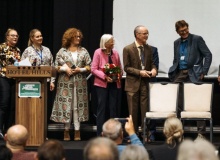
At the triennial conference held in Sarajevo, the annual Hope Award was presented to Jeff Fountain.
.jpg)
The triennial gathering organised by the European Evangelical Alliance is meant to become an experience for 280 evangelical leaders to share strategies, best practices and valuable insights.
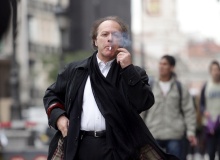
One of the best writers in Spain died recently. His sensitivity and tremendous capacity for observation painted a realistic image of how human beings are.

We travelled nearly 7,000 km, through 15 nations with either a Muslim, Orthodox, Catholic or atheistic background. We encountered 9 currencies, 17 border crossings, and met 205 people.
.jpg)
Well before the 1979 Campus Crusade “Jesus” film, based on the literal words of Luke’s Gospel, Pasolini discovered that in Catholic Italy very few had read the Gospel of Matthew.
Her fascination with Jesus fills us with hope. As Kafka said, Jesus is “an abyss of light. You must close your eyes so as not to fall into it”.
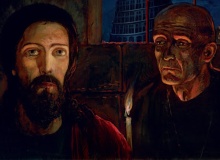
In the face of death, a desperate person can find life in Jesus Christ. That was the experience of the Russian writer Dostoevsky when he was condemned to death along with his fellow revolutionaries.

No event can ultimately be tragic because, thanks to God’s undeserved grace, every experience in our life is ultimately for the good.
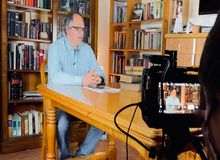
The final University project of an evangelical student turned into a documentary about Protestantism in the Spanish city. “My aim is to touch believers and unbelievers’ hearts”, she says.

The journalist Paloma Chamorro defined Franco Battiato once as “a Mediterranean artist with a penchant for orientalism, immersed in a certain religious syncretism, who likes to use symbols and allegories”.
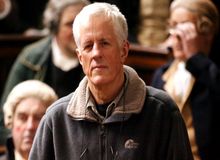
We are not here forever. Ageing makes us face up to our mortality. It tells us about more than just the “vanity” of life.

It is no coincidence that John Le Carré, the master of spy fiction, was himself a spy. He knew what he was talking about. The mistake of conspiracy theories is to believe in perfect plots.

After 55 years of work, the pandemic has aggravated the crisis of the ministry in Spain. The impact of the internet and the secularisation of Europe are a challenge for the entire sector.
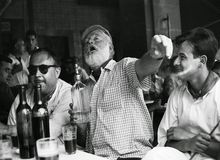
Death for Ernest Hemingway was a release from the role that life seemed to have assigned to him.
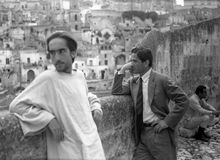
Everything started in 1962, when Pasolini was invited to a debate series. In his hotel room he found a Gospel according to Matthew which greatly impressed him, and he decided to turn into a film.
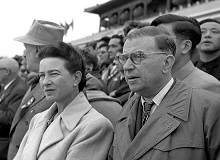
All his contradictions are no more than the expression of a philosophy centred in freedom of choice – and choices may vary according to circumstances or historical moments.

At bottom, we find a theological problem. The apes believe that God has created them to be the masters of the planet, setting them apart from the other creatures.
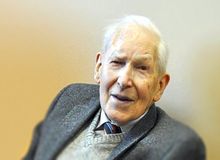
Packer used to say that his conversion had not been spectacular. The preacher showed him at the end of the sermon that, to be able to attend the party, he had to come to Christ.
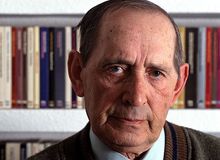
Miguel Delibes’ last book, The Heretic (1998), is about the sixteenth century Reformation in Valladolid. Where did Delibes get his information? What was his relationship with Protestants? And what were his beliefs?
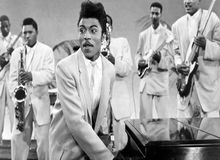
Nobody can doubt that Little Richard’s faith was genuine. He may not seem exemplary and even contradictory, but his faith could not be more authentic.
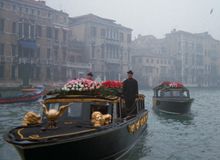
Thomas Mann takes us to the strange beauty of a misty Venice and the devastation brought on by a cholera epidemic in 1911.

Like many believers, Philip Roth feels bewildered at the relationship that the Bible establishes between plagues and God’s judgement. But can we apply this to epidemics nowadays?

The cinema shows many examples of viruses that affect humans, producing devastating epidemics that remind us of our fragility and vulnerability.

Las opiniones vertidas por nuestros colaboradores se realizan a nivel personal, pudiendo coincidir o no con la postura de la dirección de Protestante Digital.